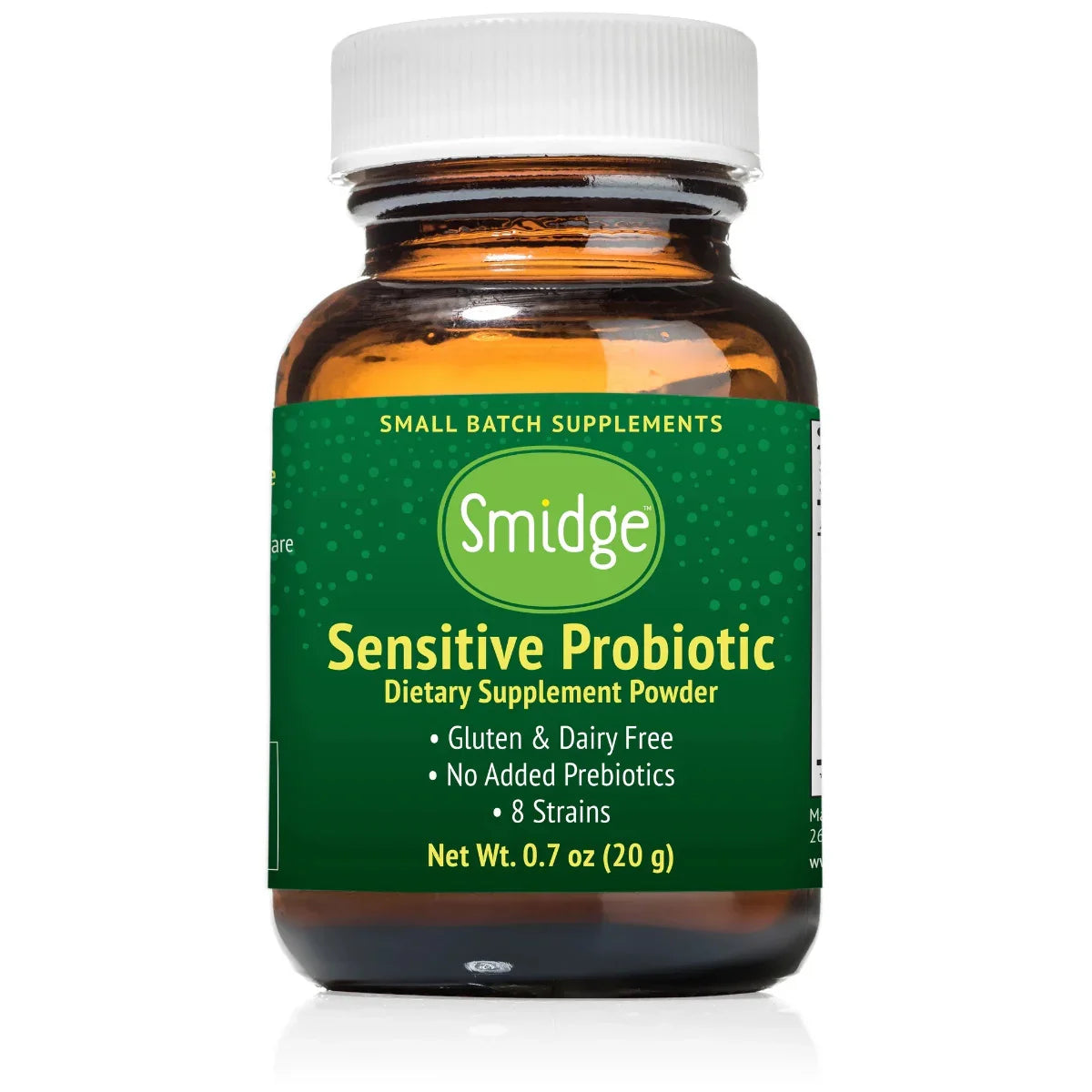
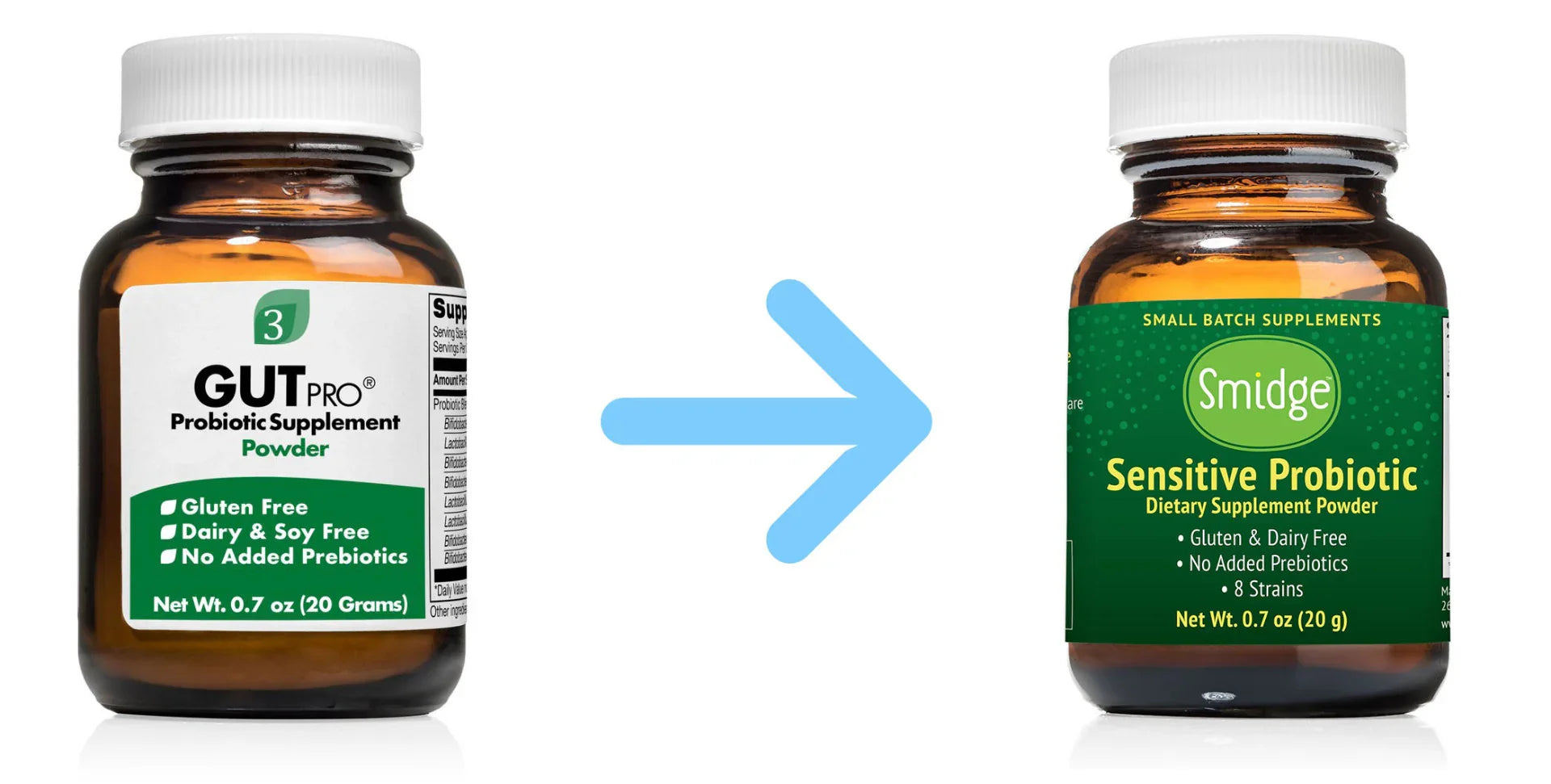
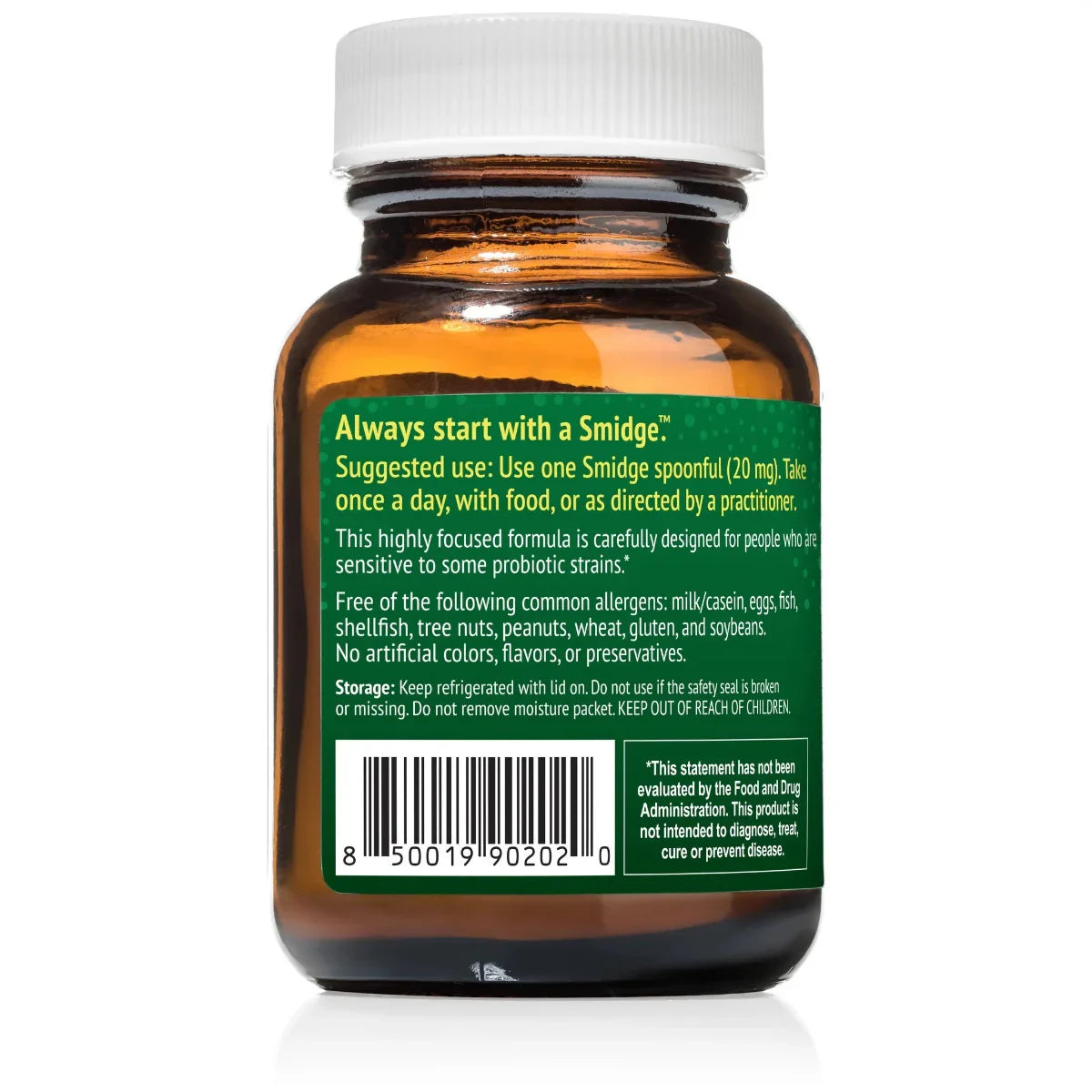
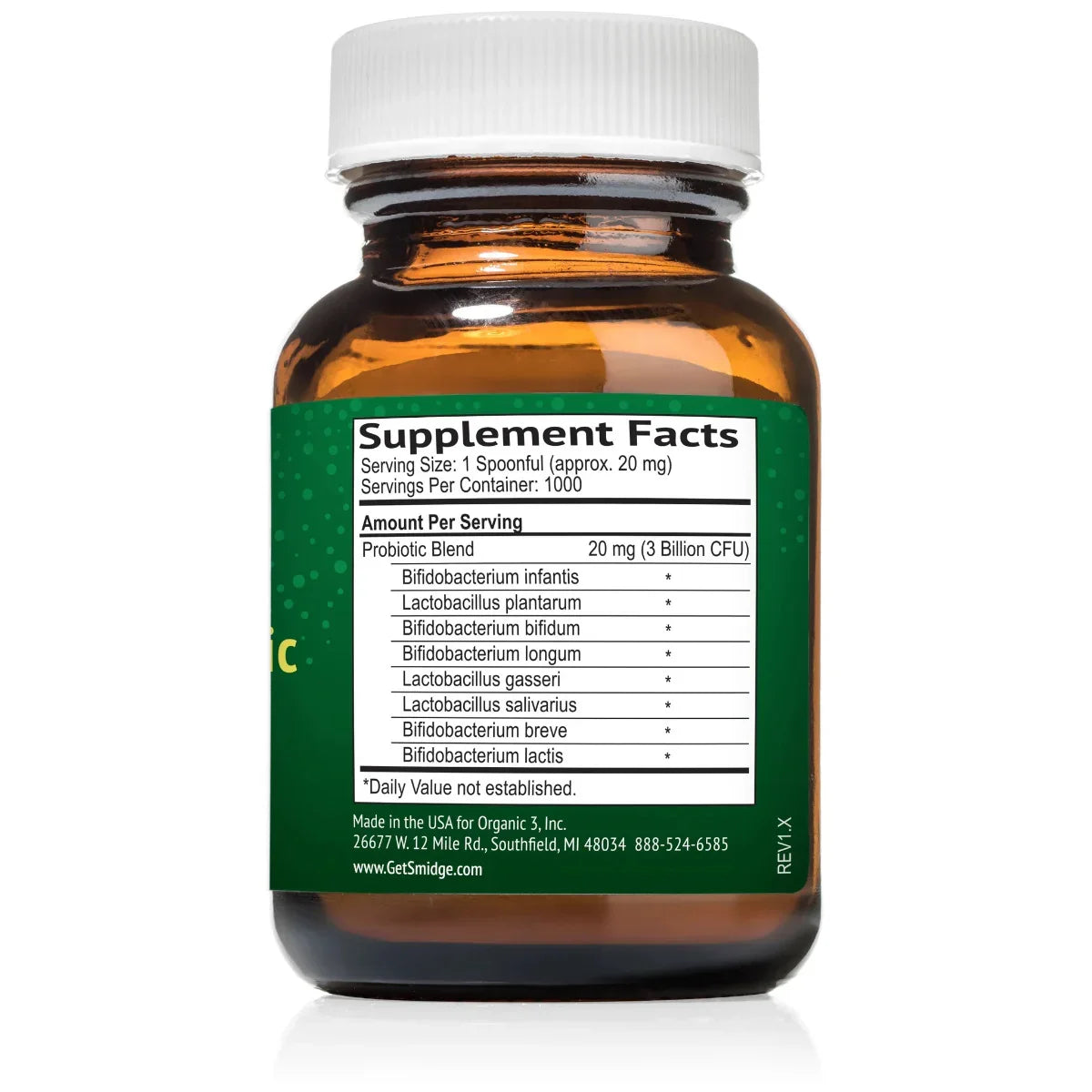
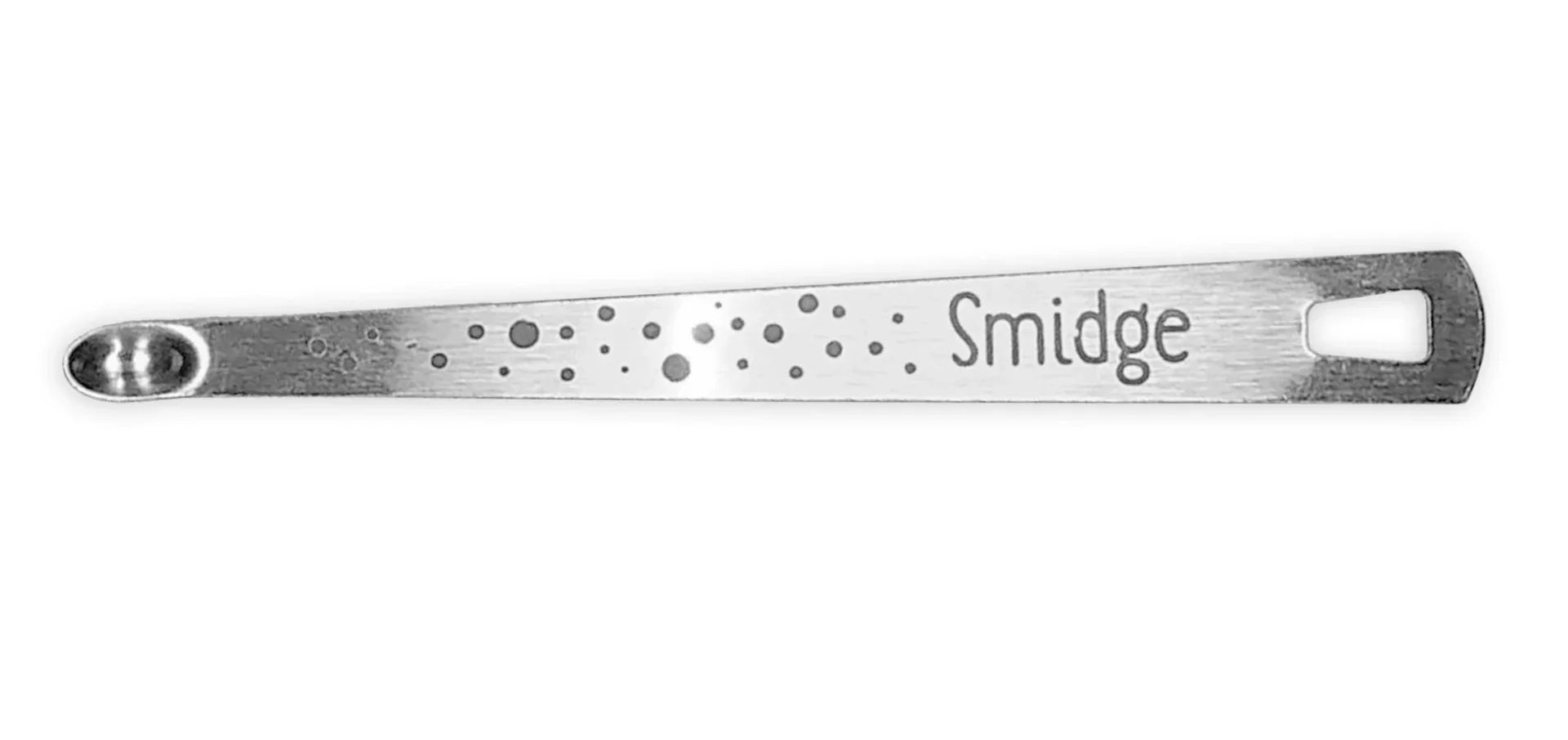
Sensitive Probiotic Powder - 20 grams
- Previously: GutPro - Probiotic Powder
- Category: Bowel & Intestinal Flora
- 3 billion CFUs per dose
- 8 histamine-neutral bacterial strains
- Free of excipients and allergens
- Suitable for GAPS and Paleo diet
- 20 grams / 1000 doses
- Includes convenient measuring spoon
Smidge™ Sensitive Probiotics Powder
The World Health Organization defines probiotics as 'living microorganisms that have a positive effect on health when consumed in sufficient quantities'. Smidge™ developed the Sensitive Probiotics Powder with 8 carefully selected, neutral strains of probiotic bacteria and without other additives such as excipients, aromas and preservatives. This makes this unrivaled hypoallergenic formula particularly suitable for even the most sensitive of users. Compared to its predecessor (GutPro® Probiotics Powder, under the brand name Organic3), considerably smaller dosages have been chosen here, so that you can build up the dosage more easily and adjust it to the amount that feels right for your body.
The uniqueness of Smidge™ Sensitive Probiotics Powder
Powerful, condensed and pure, Smidge™ Sensitive Probiotics Powder contains a carefully composed blend of the neutral bacterial strains Lactobacillus gasseri, Lactobacillus salivarius, Lactobacillus plantarum, Bifidobacterium bifidum, Bifidobacterium breve, Bifidobacterium infantis, Bifidobacterium longum en Bifidobacterium lactis. Combined, they ensure that each dose contains 3 million CFUs. The handy dosing spoon included ensures that you can measure and build up exactly the amount that suits you and your family members. In addition, no aromas, additives, fillers or preservatives have been added to the supplement and the mix contains only histamine-neutral or histamine-degrading bacterial strains. The probiotics are therefore suitable for people with sensitivities and allergies, and fit in with dietary styles and diets such as Paleo, ketogenic, GAPS, SIBO, Body Ecology and with a soy-free, gluten-free, dairy-free or casein-free diets.
About the intestinal flora
The intestinal flora, also called microbiome, is an extremely important ecosystem in our body. Did you know that our intestinal system is very personal, just as unique as our fingerprint? Essential substances are produced here, including vitamins and neurotransmitters. The microbiome also plays a key role in the digestion of food and the subsequent absorption of vitamins, minerals and other nutrients. For these processes the body works together with the intestinal bacteria present. The body acts as a host for these microbes. The intestinal flora can be divided into different bacteria and fungi, into desired and less desirable species, and into passing species or permanent residents. As with all life, it is all about balance here.
How do bacteria and enzymes function?
The body works together with the microorganisms present in the intestines for a proper course of all digestive processes. All these microorganisms in the intestinal system have their own function, but they also form an important system as a united whole. When these species are in balance, we speak of a healthy intestinal flora. This balance is different for everyone! Enzymes are the workhorses of our body. They are, as it were, chemical factories that are able to accelerate all kinds of processes in our body, so that these processes do not take years, but often only a few seconds. So digestive enzymes function as a kind of catalyst in our intestinal system. You are not what you eat, but what you absorb. So cherish these little helpers in your gut.
Benefits
- Carefully formulated mix of 8 well-tolerated bacterial strains
- Contains 3 billion CFUs per dose and comes with a handy dosing spoon
- Smidge™ Sensitive Probiotics Powder contains only histamine-neutral or histamine-degrading bacterial strains – and nothing else
- Smidge™ Sensitive Probiotics Powder is allergen-free and contains no added substances, making the powder suitable for sensitive users and suitable for diets such as Paleo, GAPS, gluten-free, soy-free, casein-free, ketogenic and Body Ecology
The unraveling of our intestinal flora
Knowledge about our intestinal flora is constantly developing. We actually know very little about this complex system and our current knowledge is just the tip of the iceberg, but almost all experts agree that it is worthwhile to take a closer look at our gut flora. For example, did you know that bacteria communicate with each other in a special way? Throughout the body, including in the intestines, bacteria are constantly in conversation with each other via a mechanism that we call 'Quorum Sensing' and they attune their behavior to each other via substances that they secrete, namely signal molecules. Among other things, they can know whether there are many congeners in their area or not and collaborate with them in an ingenious way. Thanks to their special communication system, bacteria know how to sense whether they are alone or with others and this enables them to work together in ways that we are only now slowly starting to understand.
The History of Probiotics
The term 'probiotics' was first used by German physician Werner Kollath, who describes them as 'active substances essential for a healthy life'. However, the development and use of probiotics are much older. The first use dates back to the Neolithic period, between 10,000 and 5,000 BC. Because herders in the Middle East at the time stored their milk in goat skin sacks, on which the scorching sun shone during the day, the milk began to ferment. During this time the use of other fermented foods, such as kefir, beer and wine, also arose. It was much later, in the 19th century, that underlying processes and their importance were discovered. French chemist and biologist Louis Pasteur was particularly significant with his theory that the cause of many diseases was a tiny living being, which he called a "micro-organism." This important discovery in medical science eventually led to many other insights, such as the development of vaccines, the sterilization of instruments and wound dressings in surgery, and the pasteurization of foods.
Compiled with care
Smidge™ products are carefully composed in small batches and do not contain unnecessary additives, making them of optimal quality and versatile. Because the products are developed on the basis of the latest insights and because they contain specific neutral bacterial strains, they are well tolerated by almost everyone. The products are therefore also extremely suitable for people with sensitivities or allergies; likewise, they fit right in with diets including GAPS and Paleo diets.
About Smidge™
The three founders of Smidge™ (formerly Organic3) create supplements with the main objective to provide essential nutrients to support a healthy digestive system and to help maximize the absorption of nutrient-rich food. The passion for their business stems from their own experiences of passing disease.
All three have personally found that good nutrition is the key to health and are eager to help guide others on the path to wellness through nutrition. Smidge™ supplements are natural, fresh and produced without additives, making the products suitable for the most sensitive of users.
The name 'Smidge' means 'a small quantity', underscoring the fact that products invariably get produced in small batches in order to guarantee extra quality. This not only prevents unpleasant side effects, but also provides the best possible results. Their vision, research and experience has led to unique products, with formulations inspired by the work of Dr. Weston A. Price and Dr. Natasha Campbell-McBride.
Take one Smidge™ scoop (20 mg) once daily with food, or as directed by your healthcare provider.
Convenient measuring spoon is included.
Store in refrigerator and make sure measuring spoons are clean and dry each time you use. Do not add to hot beverages or food.
Choose options





